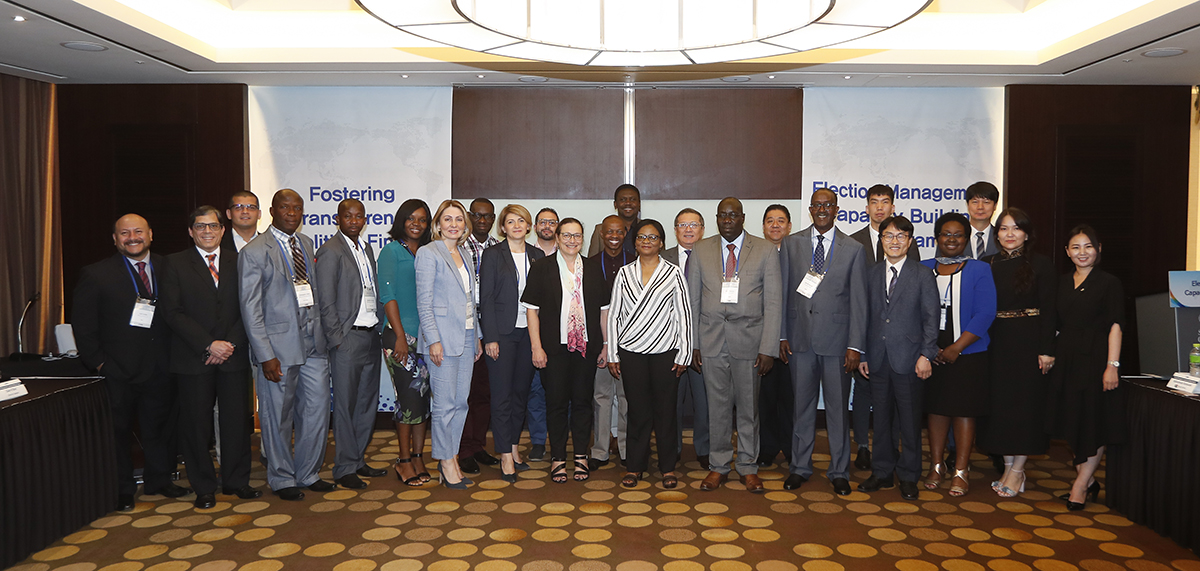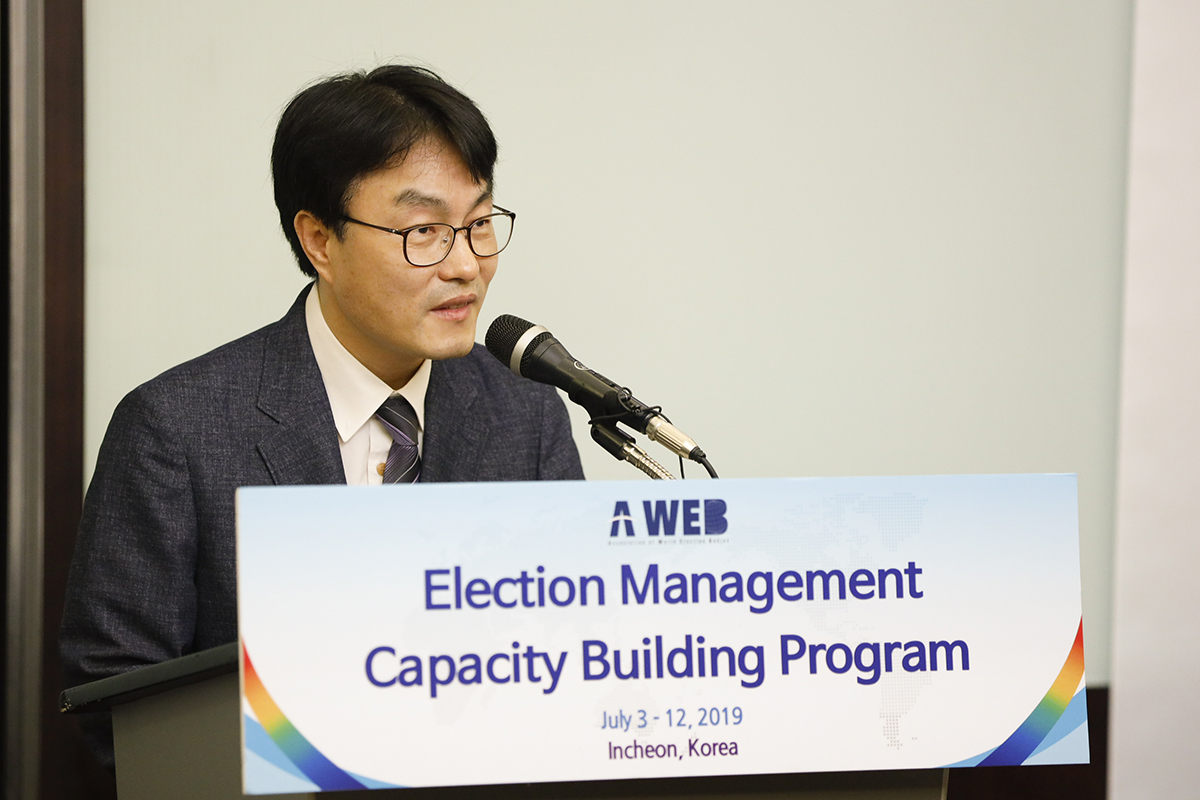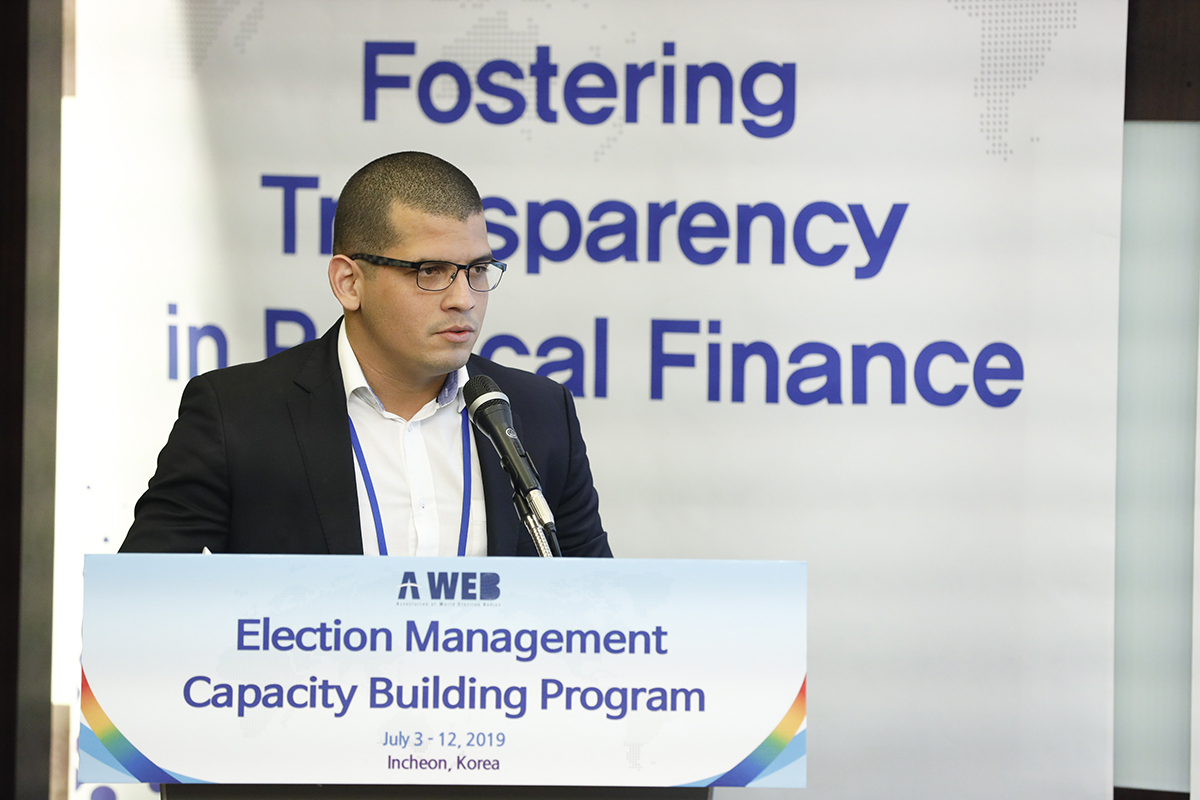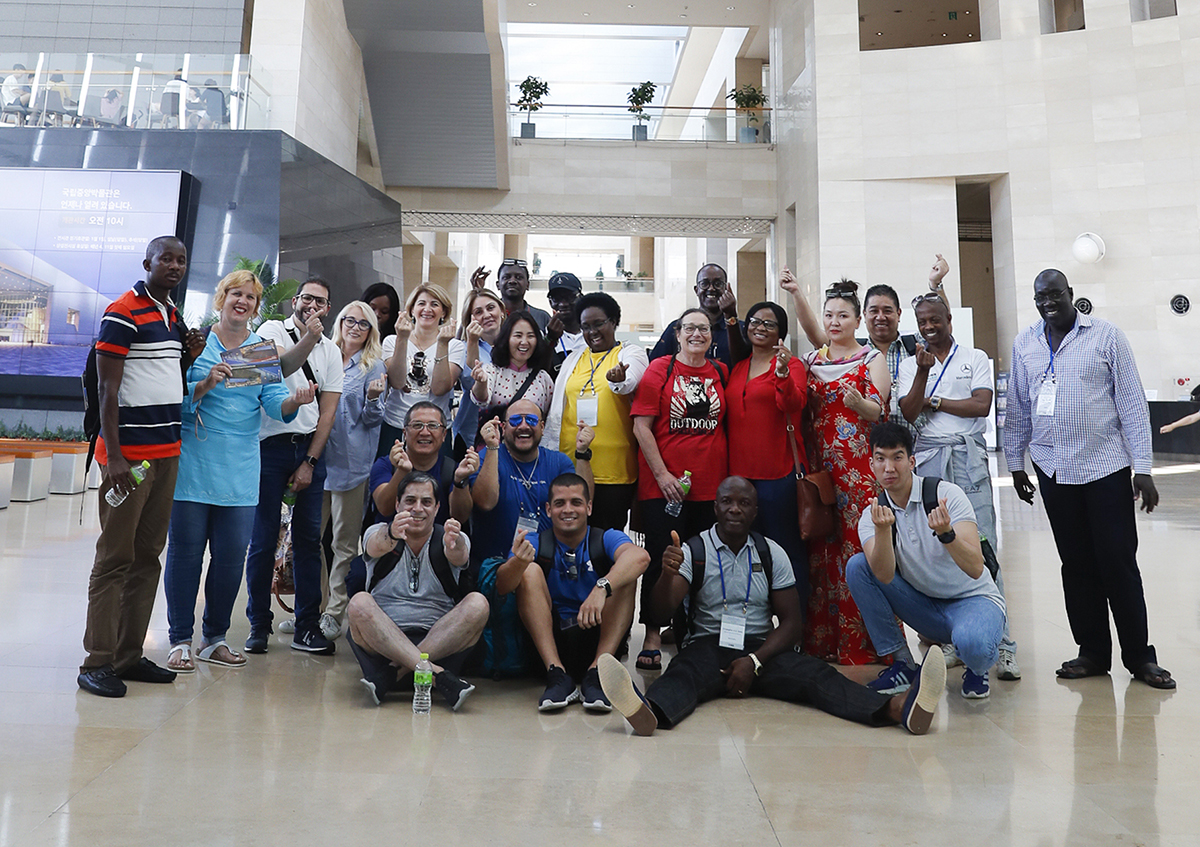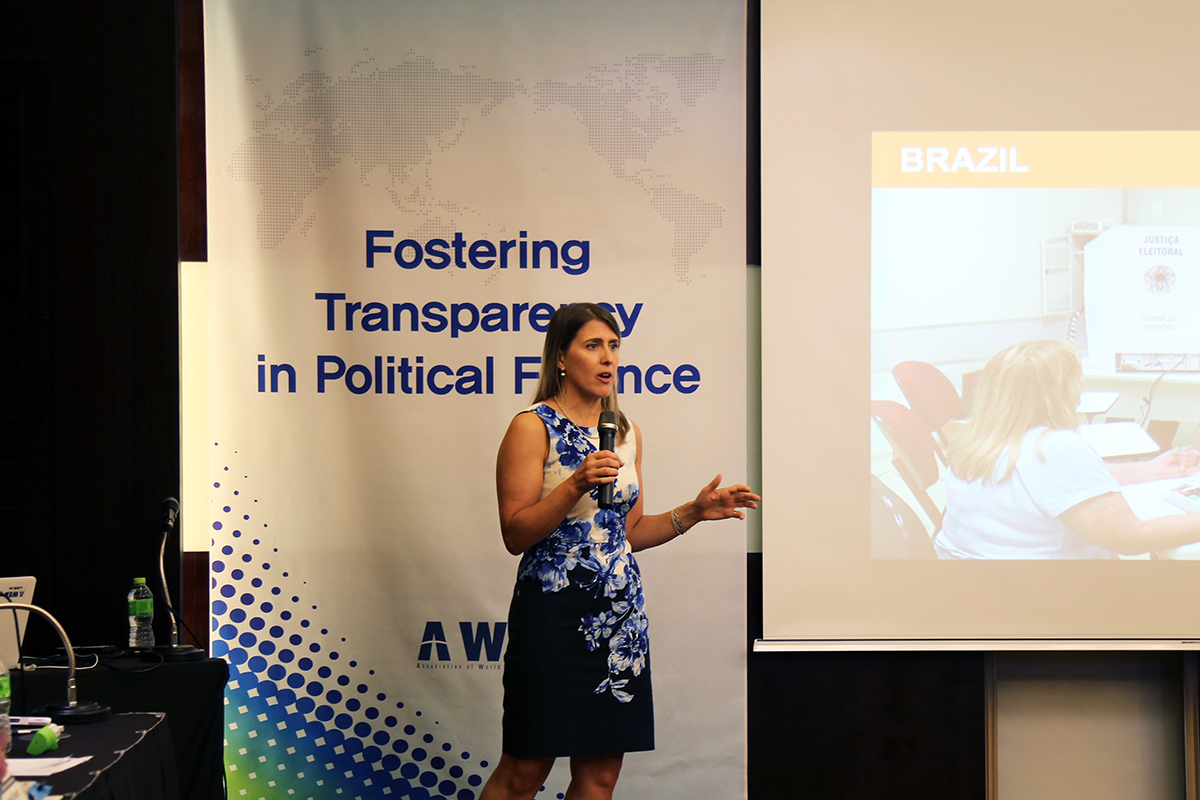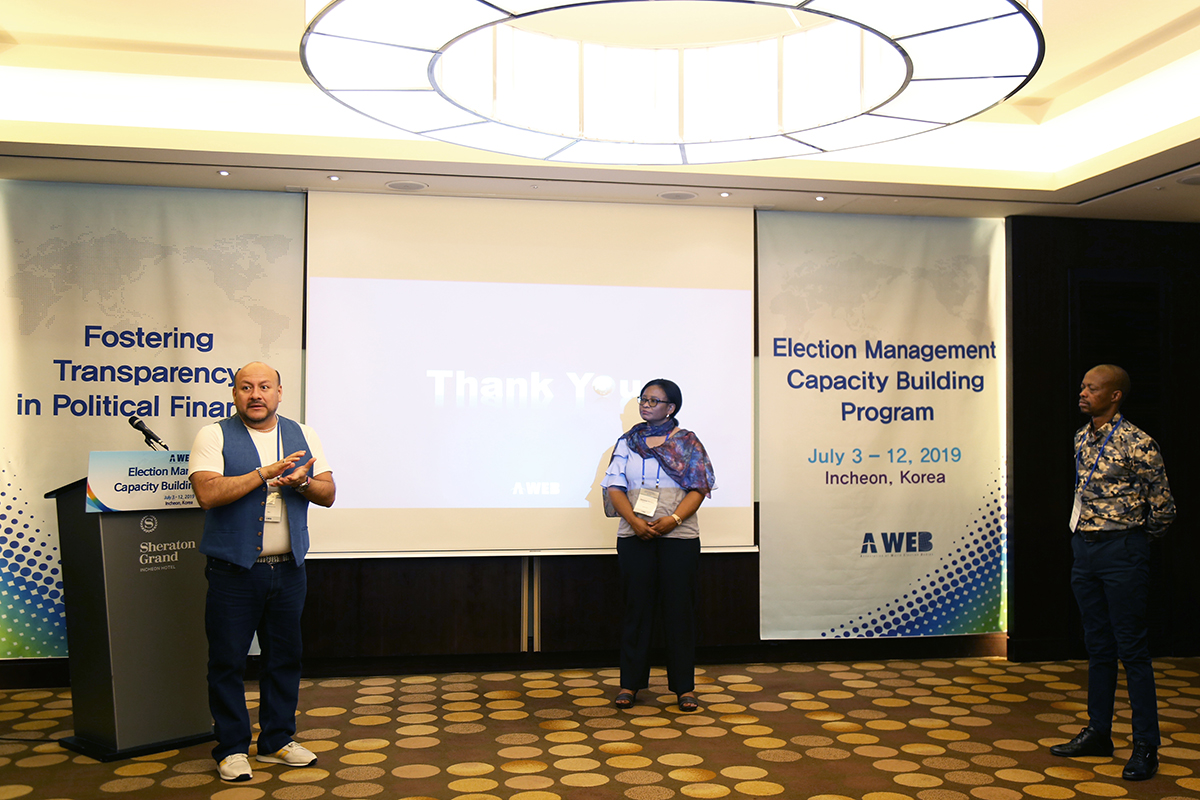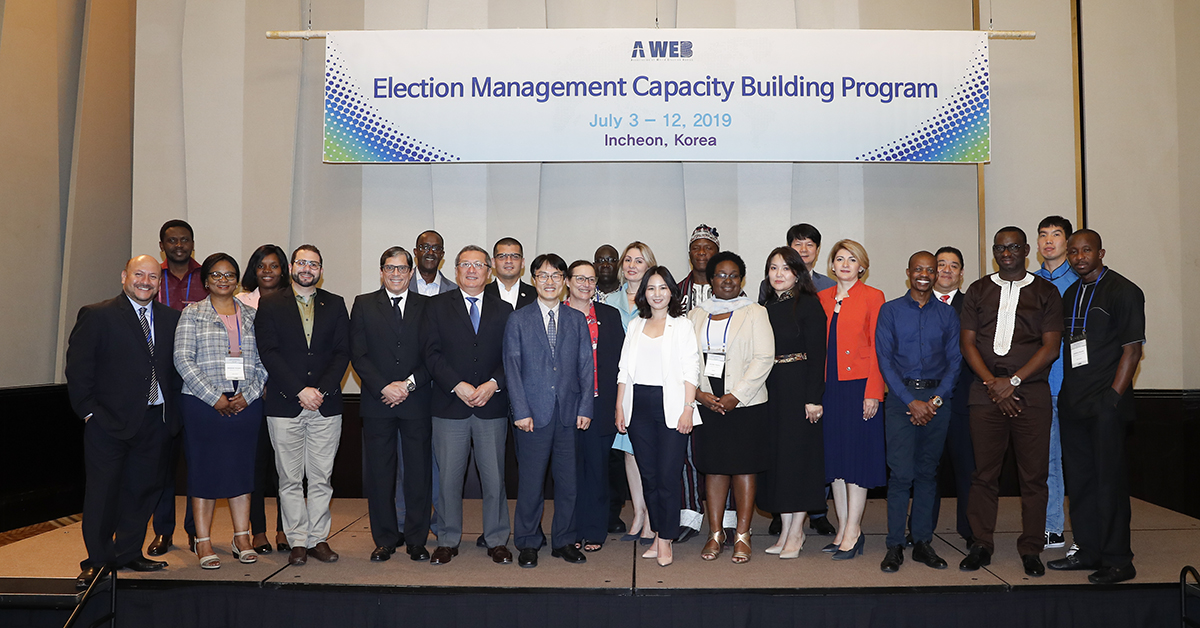| Election Management Capacity Building Program |
|---|
| Last updated 2019-07-17 |
|
The Association of World Election Bodies (A-WEB) organized the second Election Management Capacity Building Program of 2019 with the topic of “Fostering Transparency in Political Finance.” Held in Incheon, South Korea from July 3 to 12, the program gathered 22 electoral officials from 7 countries: Colombia, Georgia, Mongolia, Peru, Sierra Leone, South Africa, and Uganda. Participants introduced the current status of their countries’ political finance system and shared experiences on effective control and oversight. They also discussed the efforts carried out by different countries to foster transparency in political finance and were able to gain knowledge on how to increase trust in electoral processes.
On July 3, after a short orientation session, an opening ceremony was held where Director General Daeil Kim gave his welcoming remarks.
In the afternoon, Prof. Eunyoung Moon from Korean Civic Education Institute for Democracy (KOCEI) moderated the country report presentations. Starting with Colombia, each representative presented the current situation of the electoral and political finance system of his/her country and shared experiences in election management. Through the presentations participants were able to learn from the different systems and discussed ways on how to improve their own political finance systems.
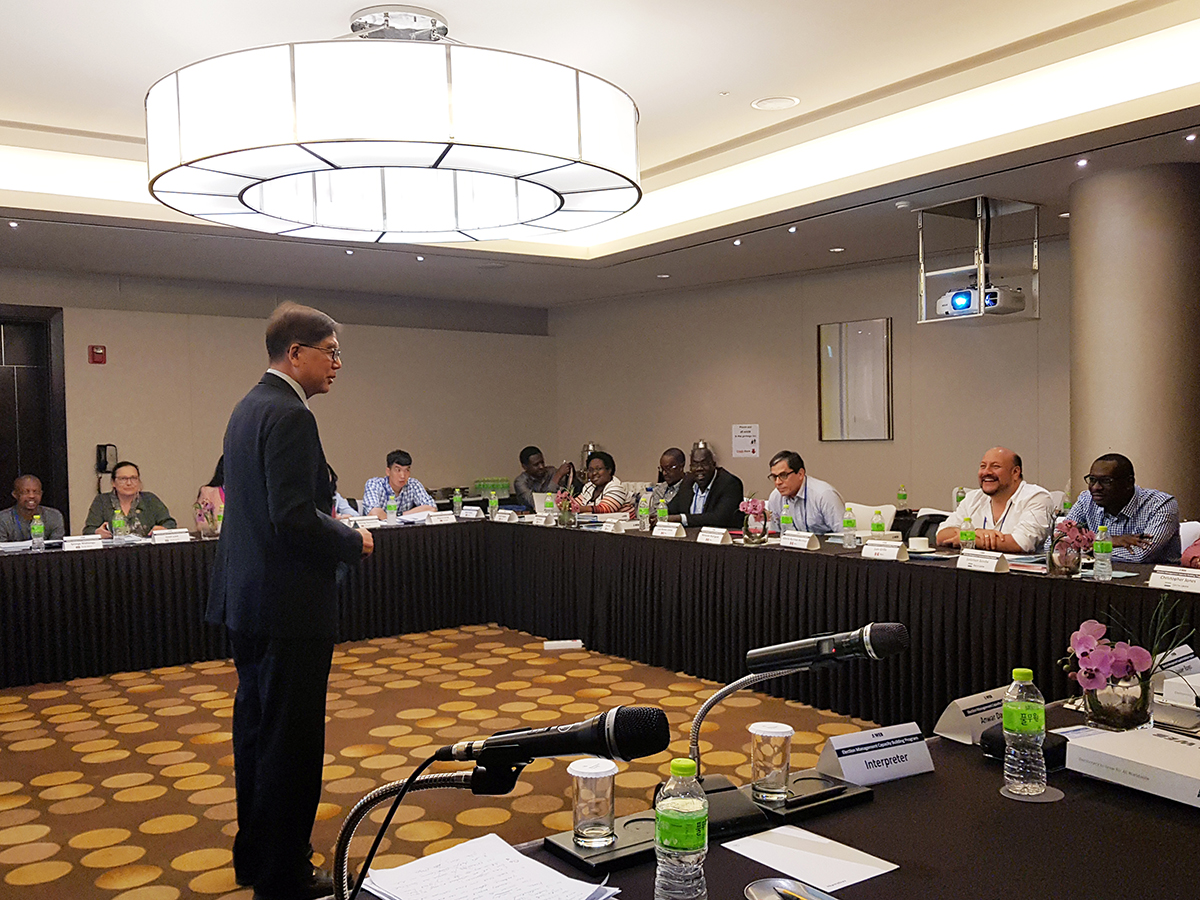
During the morning of July 4, the participants continued presenting the country report presentations. For the afternoon session Prof. Kyungbae Park introduced the political system of the Republic of Korea and gave the guidelines to draft and present an Action Plan.
On July 5, Yuliya Shypilova, International Electoral and Political Finance Expert, gave a lecture on ‘Political Finance System: Effective Implementation.’ During the session, an activity was carried out where participants expressed their ‘agreement’ or ‘disagreement’ in regards to different opinions on political finance. Through this discussion session, participants were able to share, listen, and try understanding each other’s diverse views on the topic.
During the cultural tour on Saturday, July 6, the participants visited Seoul N Tower and the National Museum of Korea, experiencing Korean history and culture first-hand.
During the morning session on Monday, July 8, Brenda Santamaria, Chief in the Organization of American States (OAS) delivered a lecture on ‘Women, Money, and Politics: Political-Electoral Finance from a Gender Perspective.’ Through the lecture, the participants looked at the status of women’s political participation and challenges women candidates and legislators face. They also examined and compared the difficulties in fund raising for women and shared cases from Latin American nations.
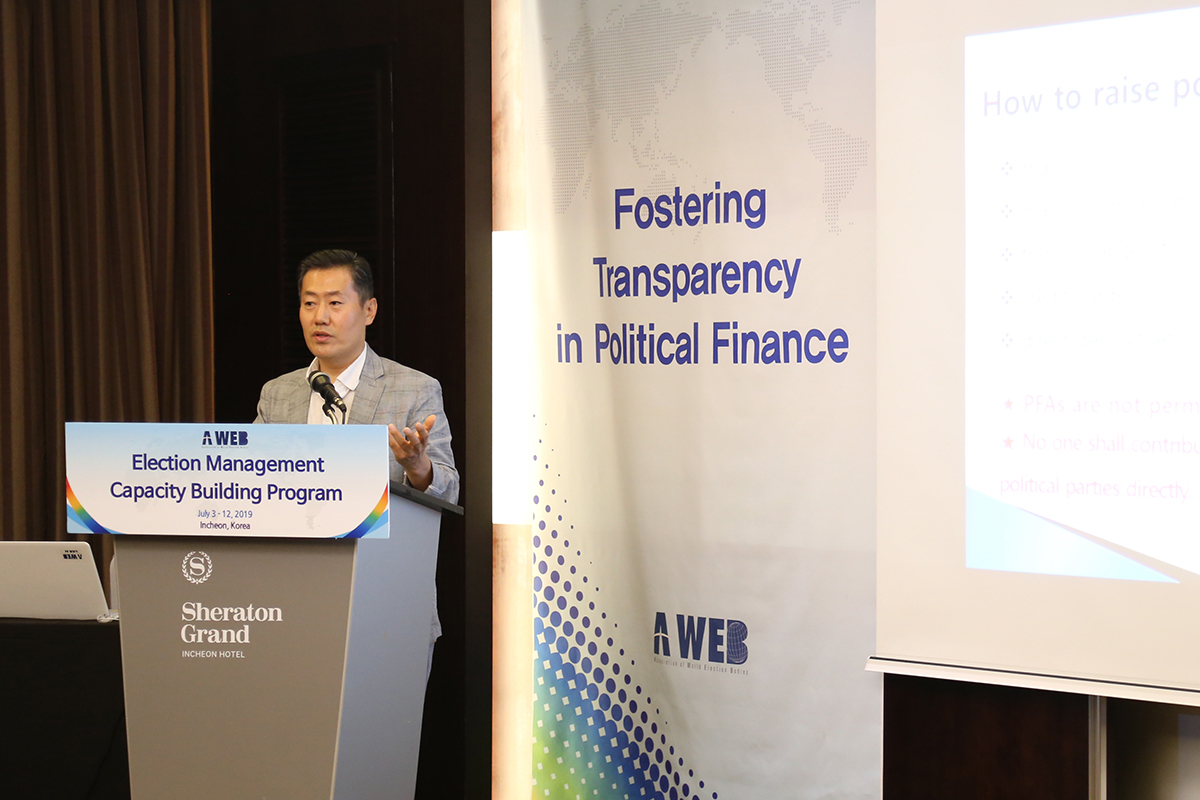
In the afternoon session, Prof. Sunghun Jan from Korea Civic Education Institute for Democracy (KOCEI) delivered a lecture on ‘Political Finance System of South Korea.’ The participants asked questions on the operation and role of the Political Fundraising Association (PFA) and sought to understand the political finance system in the Republic of Korea. In addition, they were able to study the party/candidate donation system.
During the morning of July 9, Magnus Ohman, Senior Political Finance Expert from International Foundation for Electoral Systems (IFES), spoke on the ‘Impact of Abuse of State Resources on the Democratic Process & Regulation Implementation.’ Through group discussions, the participants shared experiences of different countries on the abuse and the neglect of state resources, examining the causes of these problems and sharing ways to resolve the issues. It was a session that allowed the participants to reflect on ways to foster transparency in elections.
During the afternoon Session, Pablo Secchi,
Secretary General of Poder Ciudadano (Power of Citizens), a civic society
organization based in Argentina talked about ‘The Role and Efforts of Civil
Society in Fostering Transparency in Political Finance.’ Through this lecture,
participants gained knowledge on the different activities carried out by civic
groups to monitor transparency in fundraising and use of resources, as well as
reporting of political funds.
On July 10, participants visited the National Election Commission of the Republic of Korea, located in Gwacheon. In the afternoon, the participants visited the National Assembly, were able to observe an interpellation session of the National Assembly, and learned more about its history.
On July 11, each participating country presented an action plan. Starting with Uganda, and moderated by Prof. Kyungbae Park, participants established action plans based on the current situation and issues of their individual countries, searching for possible solutions. The participants listened and provided feedback to each other’s presentations, sharing knowledge on how to make the action plans more feasible and instructive.
On July 12, during the debriefing session, participants shared their impressions on the program and shared their individual views on political finance. The 2nd Election Management Capacity Building Program finalized with a closing ceremony. Jennifer Angeyo from the Ugandan Electoral Commission shared some final impressions saying, "From the Action Plan Presentation Session, we have picked lessons from different countries, who have adopted the digital approach, the administrative approach, and the legislative approach, and when we put together all of these, we will be able to form our next course of action."
|
